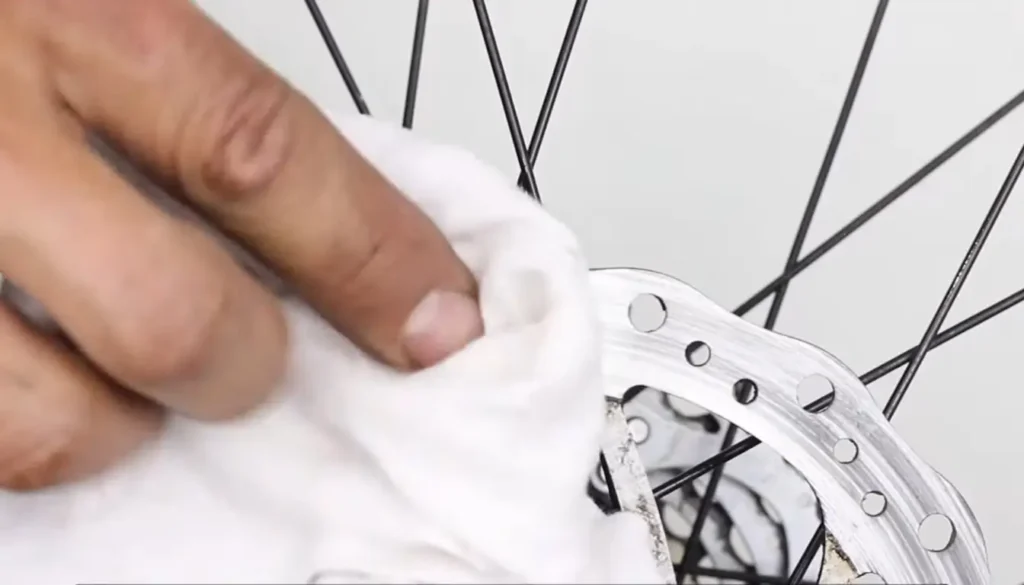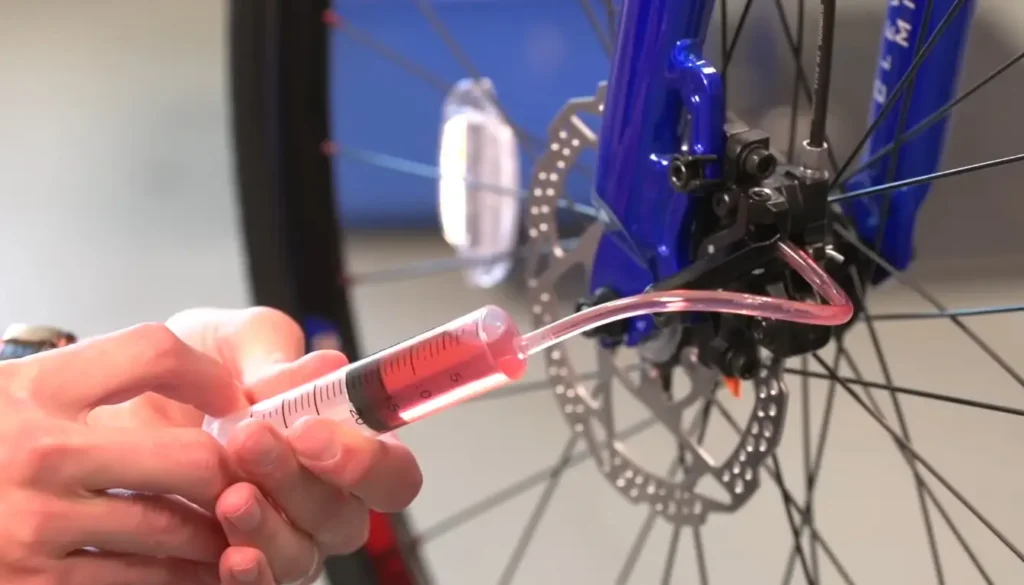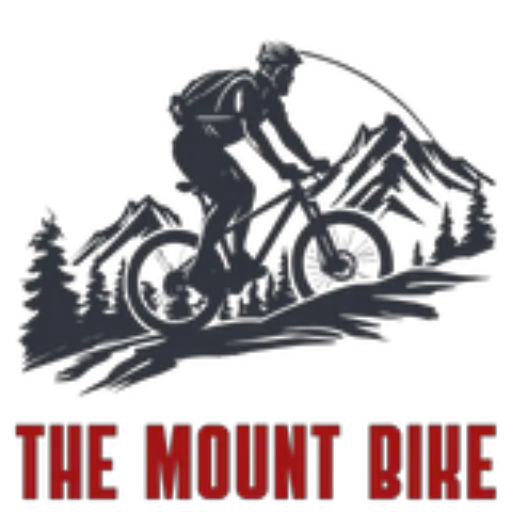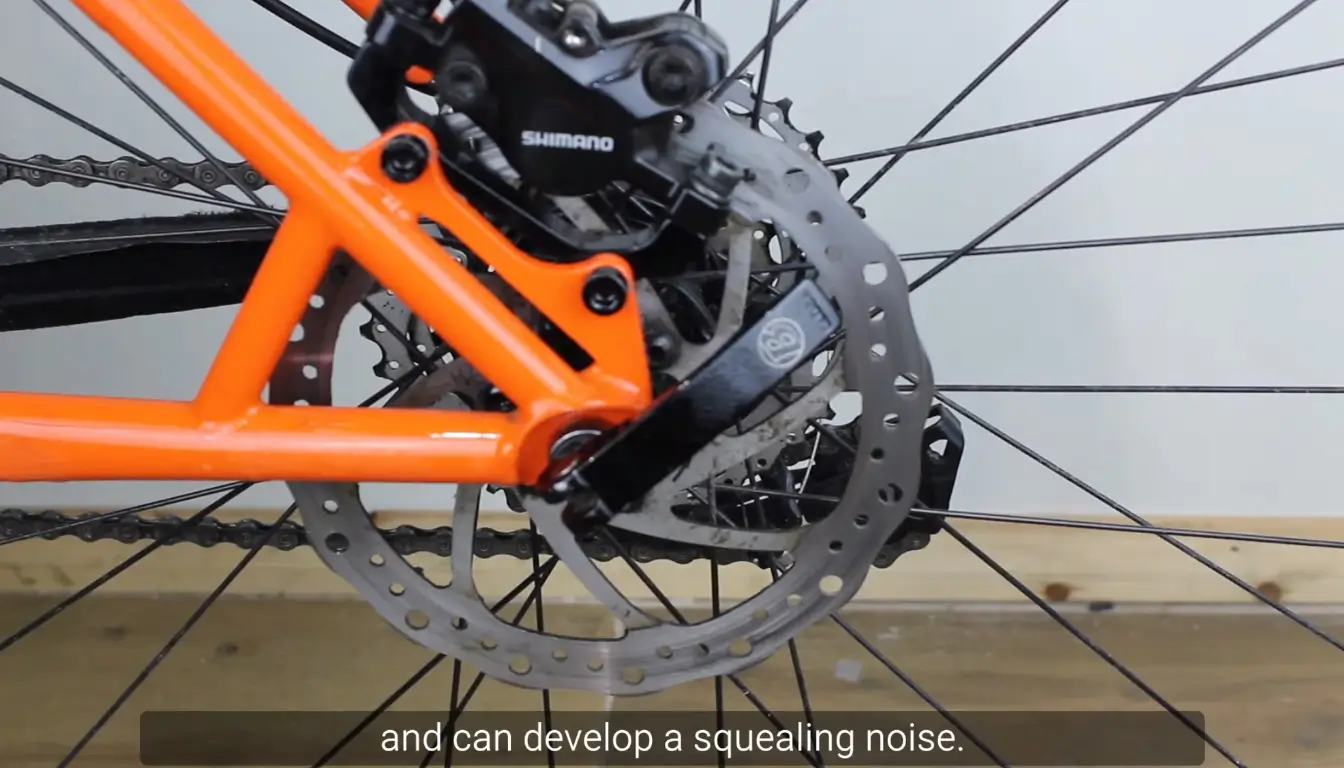If you ask what annoys me most while enjoying a long mountain bike ride, I will tell squeaking brake. It’s disruptive and ruins the peace and tranquility of the ride. Squeaking brakes not only make noise but also pose safety risks. It will be the reason your bike won’t stop or will stop without your command so that anything can happen at any time. Now the million-dollar question is why does your bike brake squeak, and how can you stop it?
Well, there are many reasons the bike brake can squeak; some common reasons are- contaminated brake parts, bent rotor or caliper misalignment, glazed or wet brake pads, loose brake caliper, etc. If you are facing any of these issues, no worries, solutions are also there. You can solve them yourself still if you are not a skilled professional.
Scroll down to learn more in detail. I have designed this article to help you in fixing your brake squeaking problems at minimal cost without going to a professional. So be with me till the end like always.
What Causes Mountain Bike Disc Brakes To Squeal
Brake squeal is a common issue that mountain bike disc brake riders face. It can be frustrating when your brakes don’t stop on a dime or when you hear that annoying squeal every time you brake. But what causes squeaky brakes?
Various reasons are there behind the cause of mountain bike disc brake squeal. Let’s know about some of the common causes below.
- Contaminate brake parts: There are a few things that can contaminate brake parts and cause them to squeal. These include dust, small pieces of metal, oil, grease, or other fluids. When any of these substances get into the brake system, they can create sparks and rotates along with the wheel as you spin it. This causes friction, which results in squealing noises when you apply your brakes.
- Loose brake caliper: Loose brake caliper is another cause of your disc brake squealing. When the brake caliper is loose, it slips and rubs against the wheel, causing intermittent noise and vibration. This can worsen over time as the caliper becomes wider and more difficult to press down onto the wheel. And with time, this also causes wear on the pads and rotor.
- Wet Brake Pads: When brake pads get saturated from rain or snow, and in wet conditions are in contact with the disc brake, they can create a squealing sound due to the friction that is created. This resistance noise is usually heard as a “squealing” sound and can also be felt through the pedal feel. In addition, over time, this rubbing will cause grooves on your discs’ braking surface, which may lead to premature wear and tear.
- Glazed Brake Pads: Glazed Brake Pads have a thick layer of polymer that helps to distribute pressure evenly across the disk surface. This type of brake pad layer is usually harder than regular brake pads. It features little to no friction due to the additives used in manufacturing, which can lead to excessive squeal caused by metal-to-metal contact.
- Bent Rotor or Caliper Misalignment: Bent rotors or calipers are commonly caused by the brake pads rubbing on the rotor due to too much play in the rotors or out-of-round calipers. This creates a high-pitched noise that might be so loud that it becomes disruptive and even dangerous. And over time, the rotor can wear down, making them squeal when brakes are applied.
How Do I Stop My Bike Disc Brakes From Squeaking

I have just shared the causes why your bike brakes squeak, and now I would like to tell you how you can prevent them. Keep your bike clean and free from rust with brake cleaner, oil your brakes regularly, and ensure there’s no debris between the brake pads and wheel hub. This will help to keep your squeaky bike brake free from squeaking. But some solutions are there based on the causes of squeaking. For your better understanding, I will explain the solutions to each problem I mentioned above. So let’s know how to stop your bike disc brakes from squeaking at home without any skill or without taking help from a professional.
- Contaminate brake parts: To prevent your brake parts from getting contaminated, you must clean the rotors and calipers. Clean with rubbing alcohol and dry the squealing brake parts with a microfiber cloth. Then use high-quality brake fluid that has been specifically formulated for disc brakes. This Fluid will protect the braking system against corrosion and damage caused by contaminants. It will also help you to get rid of noisy bike brakes.
- Loose brake caliper: In most cases, squeaking disc brake problems can be corrected by tightening both the mounting screws on each side of the calipers (a standard procedure for regular maintenance). If this does not resolve the problem, or the brakes face excessive wear and tear, you have to replace them with new ones.
- Wet Brake Pads: Brake pads are designed to stop the wheels from turning. When they get wet, this creates a gap between the brake pad and brake rotor, which causes squealing brake noise, and other problems. To fix this issue, you must apply some kind of sealant or grease the brake disc surface. You can also try applying anti-squeal strips or rubber sleeves around the calipers. Still, if you have a squeaking disc brake, you have to install new brake pads.
- Glazed Brake Pads: Remove the glazed brake pad from the brake caliper, and buff gently with sandpaper; repeat with both sides. Once done, reattach the disc brake pad and pedal with them on the smooth pavement for a few minutes. This will break in the brake pads properly and won’t squeak anymore.
- Bent Rotor or Caliper Misalignment: To squeaky disc brakes, you will need to replace either the rotor or caliper. You can usually tweak it back into position using an adjustable wrench if it’s just a bent component. However, if it’s determined that there is an outright fracture in one of these parts, then replacement may be necessary to get back the braking power.
What Oil To Use For Mountain Bike Brakes

Mountain bike brakes use oil as their lubricant. But you just can’t use any oil in it. You need to consider a few factors when deciding which oil to use. The type of riding you do will influence your choice, as will the material used for your braking system.
Usually, mineral oil is used for mountain bike brakes, and it’s best. Mineral oil does not leave residues or greases on parts of the bike after application, making it easy to keep your bike looking clean and polished. It also doesn’t absorb water, so it remains lubricated even when wet, making it an ideal choice for brake systems exposed to moisture and salt water. Additionally, mineral oil has a low reactivity rate which means that it’s resistant to rusting and corrosion. Just like high performance, its price is also high.
Can I Spray On My Brakes To Stop Squeaking
No, you can’t spray on your brakes in any situation. If your brakes are squeaking, read the causes of squeaking I shared above and find out which one you are facing. After finding the cause read the solution ( shared above). Don’t ever spray anything on your brakes; they may stop your brakes squeaking for some time but will prevent you from enjoying the most of your biking experience.
Can WD-40 Stop Brakes Squeaking
First of all, WD-40 is not designed as a disc brake cleaner; it’s a lubricant designed for home use. Although it can clean your brakes, it can be dangerous. When sprayed, the chemical leaves a slippery residue and reduces friction, which may damage brake components over time.
Wrap Up
While there are many reasons bike brakes can squeak, several solutions are also there. I have shared all the possible cautions a bike brake can sequel and details about getting rid of squeaking. So if you have read and observed my saying, I hope bike brake squeaking or noisy brake is no longer a problem for you.
And if your brake is fine till now, then just make sure the brake is properly lubricated and free from moisture build-up. This will keep your bike brake in good condition and ensure the bike brakes function at their best.

I am Ryan Ford, a mountain biking enthusiast who loves to explore the outdoors. I also like to go on adventures with friends and anything else that involves being outside. I love my bike because it gets me out of the house and gives me an opportunity to enjoy nature.

